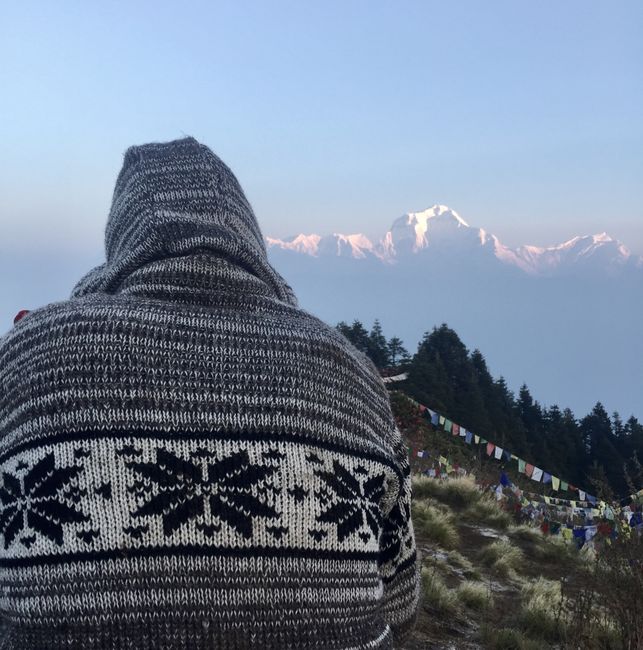Uwe
Lieber Finn, ehrliche Worte, aber auch das muss man ertragen, wenn man eine Reise unternimmt und nicht weiß was einen erwartet. Mir geht es so mit der Türkei. Zunächst wollte ich es nicht "wahrhaben", aber die zweite Reise brachte die Bestätigung. Mehr Reisen bedarf es nicht.Finn vs. Nepal
Argitaratu: 04.05.2018
Harpidetu Buletinera
My impression of Nepal can be described quite well using an analogy:
“Dal Bhat power - 24 hours!”
This slogan can be found on thousands of T-shirts that are sold everywhere and it means that the national dish (rice with lentils) is eaten for breakfast, lunch, and dinner. I find it extremely boring, but one could also conclude that the Nepalese are straightforward. Get up - Dal Bhat - go to the temple - Dal Bhat - do some work (preferably in the tourism sector) - Dal Bhat - watch cricket - sleep - repeat!
This representation of a day is of course very simplified, but during the 4 weeks, I found it difficult to identify any peculiarities about the people. Maybe this is largely due to the language barrier, but I feel that the country and the people have become so focused on tourism and the numerous visitors who come here for hiking that the entire country's economy depends on it. Accordingly, we as visitors were also seen in this way: 90% of the time, I felt like a dollar sign on two legs and I disliked that. It was not necessarily different in India, but there I felt that people were glad that I was interested in their country and that my well-being really mattered to them... or maybe the Indians just made more effort.
I thought India had prepared me for everything that was to come, but I definitely still need to learn not to feel directly hurt in my pride by the clumsiness and audacity with which they try to take money out of my pocket.
Back to the analogy: The positive aspect of the straightforwardness of the Nepalese is probably the associated willpower. An example of this for me was the porters in the Himalayas, who carried the luggage of tourists for kilometers on their heads through the mountains. Although that seems like slavery to me, the men (regardless of their age) don't flinch when they get to carry the makeup cases of two blonde dolls with manicured nails. You can see how exhausting that really is in our video from the Pool Hill Trek.
Another good example for me are the Gurkhas that Nepal is very proud of. The fearless soldiers, who are even deployed in the British military because of their strength, are the absolute superstars in Nepal. You can see their silhouettes on beer bottles, there are training centers where young men are prepared for the army entrance exam, and there are just as many shops where you can buy the curved blades of the Gurkhas in all sizes, like souvenir shops.
In order to complete the thought experiment: I find it admirable how the Nepalese deal with the living conditions given to them, which are sometimes extreme poverty, and despite the repeatedly failing efforts of various governments to establish a functioning economy that does not fully rely on tourism, they stubbornly carry on with their everyday lives.
However, I expected a spiritual and historically rich country that visitors can immerse themselves in.
What I found, though, is a country that would probably have deteriorated a long time ago without the tourists who want to admire the beauty of the Himalayas (and by the way, also talk about nothing else; contacts in the hostels never went beyond the topic of which trek you have done or plan to do). India or China would just need to put up a flag on Nepalese soil to take it over.
In summary, I am personally disappointed by Nepal (maybe I had unjustified expectations, and maybe it was different before the major earthquake in 2015)
and I would not recommend anyone who doesn't want to go hiking to travel to Nepal. At least not until the temples and facilities that were destroyed in the earthquake have been rebuilt.
Highlights:
- Trekking tour in the Himalayas
- 5 days of doing nothing and enjoying time with Emely in Pokhara
Most beautiful place:
Mountain village before Tadapani, where we spent a night on the trek
Most interesting place:
Golden Temple in Patan
Harpidetu Buletinera
Erantzun (1)


